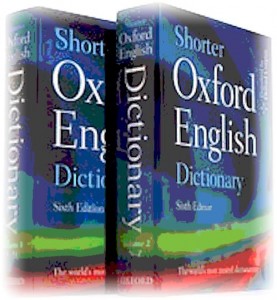‘Well, actually it is. The writer wrote it – and, as far as we can tell, a good portion of her readers understood what she meant in using it. So, for all practical purposes, it’s a word.’
‘Yeah, but it’s not a real word.’
‘It’s as real as any other word.’
‘I bet you anything that you can’t find it in a dictionary.’
‘You may well be right – for the moment – but that doesn’t mean that it’s not a real word. Dictionaries don’t lead; they follow. Dictionaries record the common spelling and meaning – or meanings – of words that people are already using.
‘New words are being coined every day. Technically they are known as neologisms. Many of them wither away within a matter of months. But others stick around long enough to find their way into the next edition of The Oxford or Mirriam-Webster or one of the other authorities to whom we turn when we want to know the meaning or accepted spelling of a word with which we are unfamiliar.’
‘That’s just silly. If that was the case, I could just make up a completely new word.’
‘You could.’
‘And if I could persuade a few people to use it, it could end up in a proper dictionary – even though I had just made it up.’
‘Not only could it, but it probably would.’
‘Hmm.’
And so ended the conversation.

